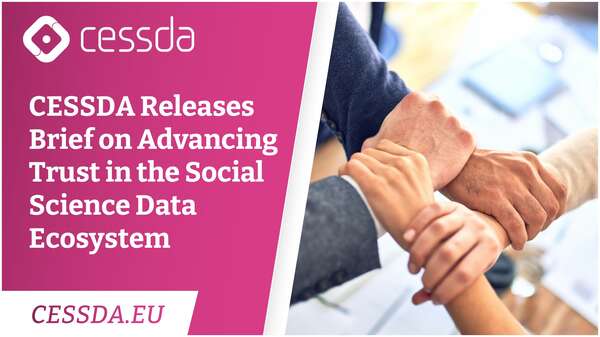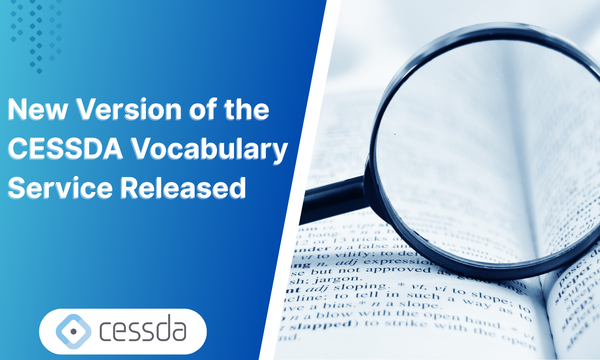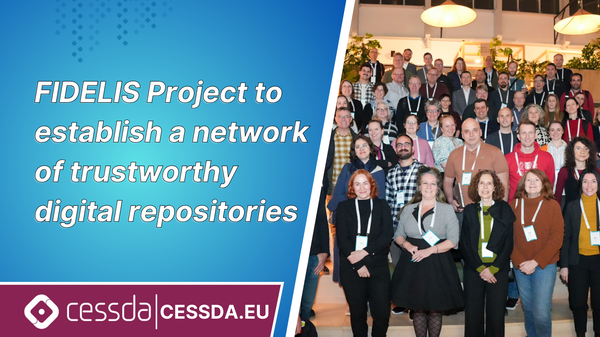News
News from CESSDA

CESSDA Releases Brief on Advancing Trust in the Social Science Data Ecosystem
CESSDA has released a new brief, “The battle for trust: Advancing the social science data ecosystem”. The brief presents a comprehensive overview of the open data landscape from the perspective of European social science data archives. It emphasises the critical role of trust, transparency, and collaboration in ensuring timely and responsible data sharing.

E-RIHS becomes an ERIC
On the 28th of March, the European Commission granted the legal status of European Research Infrastructure Consortium (ERIC) to the European Research Infrastructure for Heritage Science (E-RIHS), making it the second research infrastructure in the social sciences to become and ERIC in 2025.

New Version of the CESSDA Vocabulary Service Released
On 31 January 2023, CESSDA released version 3.0.0 of the CESSDA Vocabulary Service, marking an important milestone for the infrastructure. Since 18 March 2025, version 3.4.0 has been available. This new version is characterised by improved stability and enhanced performance.

Surveybanken: A New Way to Disseminate Survey Data
Surveybanken (The Survey Bank) introduces an innovative approach to disseminate survey data. By combining full-text indexing, instant visualisations, and a built-in data analysis tool, it makes survey data accessible to everyone, not just experts. Developed by Sikt (formerly NSD), the dissemination service is built on top of Sikt's Research Data Platform.

FIDELIS Project to establish a network of trustworthy digital repositories
Earlier this year, the new EU funded project FIDELIS kicked off in Helsinki, Finland. The project will harmonise the definition of what makes a digital repository trustworthy in the context of the EOSC. It will provide a framework for repositories to support each other, not only in becoming, but also in remaining trustworthy and FAIR-enabling (Findable, Accessible, Interoperable, Reusable) over time.

CESSDA Director Bonnie Wolff-Boenisch Joins DDI Executive Board
Following a special election, CESSDA’s Director, Dr. Bonnie Wolff-Boenisch, will be joining the Data Documentation Initiative (DDI) Alliance’s Executive Board.